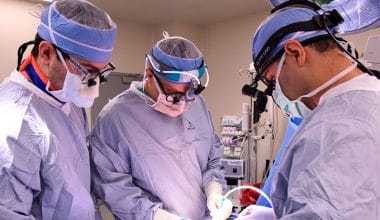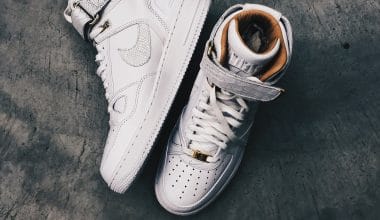Trying to pen down your admirations, goals, and motivation can be daunting. We’re often clouded with many ideas that we need help figuring out where to start.
However, drafting a medical school personal statement becomes hitch-free with a proper guide and step-by-step procedures backed up with a sample.
Therefore, this article, put together by the Kiiky Team, will give you detailed insight backed up with examples of how to write a coherent and apt medical school personal statement. Stay with me!
In this post, we’ll elaborate on the prerequisites to be found in a medical school personal statement with clear samples for your instant use.
Therefore, read carefully to understand how to write a captivating med school personal statement that defines who you are and what you’re capable of.
Strict adherence to the following tips will put you ahead as medical schools seek to enlist bright, empathetic, communicative people.
See the table of contents below for a glance.
Table of contents
- What is a Personal Statement?
- What Is A Medical School Personal Statement?
- Why Do Medical School Demand For Personal Statements?
- What Makes Up A Good Medical School Personal Statement?
- How To Start A Personal Statement For Medical School
- 10 Tips on How To Write A Personal Statement Medical School
- 1. Write and edit over and over
- 2. Stay focused
- 3. Be Personal and Specific
- 4. Find your unique angle and keep it interesting
- 5. Be expressive of your writing
- 6. Embrace the 5-point essay format.
- 7. Keep it simple and also use the right transition words
- 8. Stick to the rules.
- 9. Seek multiple opinions.
- 10. Double-check the details.
- How Long Should A Personal Statement Be For Medical School?
- Mistakes To Avoid In A Medical School Personal Statement
- Examples Of Medical School Personal Statements
- Conclusion
- FAQs On Medical School Personal Statement
- References
- We Also Recommend
What is a Personal Statement?
A PERSONAL STATEMENT IS a very important requirement in medical school admissions decisions.
According to Dr. Stephen Nicholas, former senior associate dean of admissions with the Columbia University Vagelos College of Physicians and Surgeons,” The essay really can cause me to look more deeply at the entire application, so I think it’s pretty important.”
A medical Professor of medicine and microbial pathogenesis at Yale school of medicine, Dr. Barbara Kazmierczak, opines that” a compelling medical school admissions essay can address nearly any topic the applicant is interested in, as long as it communicates the applicant’s personality.”
With the above comments from top medical professionals, a well-written medical school personal statement conveys a student’s commitment to medicine. Thus, selling the student in a good light.
What Is A Medical School Personal Statement?
According to admissions experts, a medical school personal statement is a report of the events that inspired and prepared a Pre-med to apply to medical school.
This personal essay aids admissions officers in figuring out the level of enthusiasm in the Pre-med and interprets whether a Pre-med has a compelling rationale for attending med school.
In other words, a personal statement bestows the opportunity to present a compelling picture of who you are and perhaps why you want to be a doctor.
This is more like a sales copy. It sells your personality, which determines whether you will be admitted. Do you now see why it is very important for your medical school personal statement is in great shape?
Why Do Medical School Demand For Personal Statements?
The goal of a personal statement is to describe why you want to study medicine and the factors that inspired you to apply to medical school. This personal essay helps in the proper selection of candidates.
Furthermore, it clarifies whether a Pre-med has a compelling rationale for attending med school.
In addition, a well-drafted medical school personal statement conveys a student’s commitment to medicine. It allows the admissions officers to interact and feel the way the applicant feels through the choice of words, diction, and idea inherent in the personal statement.
According to Glen Fogerty, an admission executive with the medical school at the University of Arizona—Phoenix, “The strongest personal statements are the ones that share a peculiar connection.
One where a candidate shares a special moment, the spark that ignited their passion for becoming a physician or convinced them to choose medicine as a career.”
Lastly, a great personal statement emotionally impacts the admission process. Asides from your paper qualifications, the personal statement gives the medical school reasons why you’re a good fit for the profession.
Therefore, before you begin, consider how yours will stand out, be unique, and differ.
What Makes Up A Good Medical School Personal Statement?
When writing a medical school personal statement, there are three focal points to consider. These points help express and convey the right idea to the reader, which leads to the required result, securing admission into a med school.
Therefore, your statement should include the following three components:
- Motivation — The motivation statement answers the question, why do I want to study Medicine?
- Exploration — This highlights the efforts you’ve put into learning about the field of medicine. This emphasizes your level of curiosity and inquisitiveness.
- Suitability — This states why you are a great fit for the profession.
See Also: 30 Med School Scholarships for International Students In USA … Read more
How To Start A Personal Statement For Medical School
A personal statement should reflect an applicant’s past, present, and future by explaining how previous experiences have led to this point and outlining long-term plans to contribute to the growth of the medical field.
Medical school admissions officers want to share in your understanding of the medical profession, your motivating factor, desires, and the direction he or she is going.
That being said, the passion you have for the profession should come through in your writing,
Here are the following points to consider while writing a medical school personal statement;
- An intriguing introduction that is captivating.
- Anecdotes illustrate what kind of person the applicant is.
- Reflections about the significance and impact of medicine in various life experiences.
- A convincing narrative about why medical school is the reasonable next step.
- A satisfying and promising conclusion.
Fassas, a first-year medical student at the University of Maryland, suggests reflecting on the following questions:
- Why can you really only see yourself being a physician?
- What about being a doctor has turned you on to this field?
- What kind of doctor do you imagine yourself being?
- Who do you want to be for your patients?
- What will you do specifically for your patients that only you can do?
Succinctly put, applying the aforementioned points helps Pre-meds eloquently describe a noble mission. That is to say, prospective medical students need to clarify and express why medicine is the most suitable profession for them.
NOTE: Your medical school personal statement wields enough power to take you to where you want to be.
10 Tips on How To Write A Personal Statement Medical School
These personal statement tips outlined below help the admissions committee better understand you as a candidate.
1. Write and edit over and over
This gives you ample time to get your essay ready and in good shape. It helps review what you’ve written and re-work your draft.
2. Stay focused
Your statement should revolve around interesting aspects of your journey related to the subject idea. Therefore, choose a theme, stick to it, and support it with precise examples.
See Also: 27 Scholarship for Medical Students from Developing Countries |UPDATED … Read more
3. Be Personal and Specific
Adopting a more personal approach other than the general cliche will help you be more expressive in your writing.
4. Find your unique angle and keep it interesting
Always personalize your writing in an interesting manner, using the right expressions and semantics. Bring your voice and perspective to your statement to make it memorable.
Moreso, endeavor to start with a “catch” that will create intrigue before launching into the story of who you are.
5. Be expressive of your writing
Instead of telling the admissions committee about your unique qualities (like compassion, empathy, and organization), express them through the stories you tell about yourself. Don’t just say it; prove it with practical instances.
6. Embrace the 5-point essay format.
Here’s a trusty format that you can make your own:
- 1st paragraph: These four or five sentences should “catch” the reader’s attention.
- 3-4 body paragraphs: Use these paragraphs to reveal who you are. Ideally, one of these paragraphs will reflect clinical understanding, and one will reflect service.
- Concluding paragraph: The strongest conclusion reflects the beginning of your essay, gives a summary of you are, and ends with a challenge for the future.
See Also: Top Med Schools In The World
7. Keep it simple and also use the right transition words
Your essays should be easy to comprehend. Therefore, avoid the use of ambiguous ways as much as you can.
In addition, modify your sentence structure to have a coherent flow. That is to say; your paragraphs should connect.
8. Stick to the rules.
Watch your word count. That’s 5,300 characters (including spaces) for AMCAS applications, 5,000 for TMDSAS, and 4,500 for AACOMAS.
9. Seek multiple opinions.
Before you hit “submit,” ask for feedback on your statement from people who are good in the act. A professor or friend whose judgment and writing skills you trust are invaluable.
10. Double-check the details.
Always check for grammar, spelling, and punctuation errors. This also applies to the rest of your application activities.
A common oversight might be obviously inappropriate. Give yourself and your proofreaders the time this task truly requires.
You May Want to Read: Best Med Schools in Texas
How Long Should A Personal Statement Be For Medical School?
The word count for a medical school personal statement differs according to application. However, for AMCAS applications, 5,300 characters (including spaces). For TMDSAS, 5,000 characters and 4,500 characters for AACOMAS.
Mistakes To Avoid In A Medical School Personal Statement
One thing Pre-meds should never do in an admissions essay is beg. According to Rankin, making requests of any type – including a plea for an admissions interview – does not belong in a personal statement. In the same light, try as much as possible to avoid controversial political subjects such as the death penalty or abortion.
Furthermore, prospective medical students should not fail to proofread their personal statements closely. Otherwise, the essay could be submitted with careless errors such as misspellings and grammar mistakes that could easily have been fixed.
That is to say, drafting a compelling personal statement typically requires multiple revisions, so Pre-meds who don’t revise their essay end up submitting a poorly written essay.
Here’s an outline of what to avoid while writing a medical school personal statement.
- Don’t exaggerate how passionate you are. Everyone applying to medical school can say they are passionate. Instead, show your readers something you have done that shows your passion.
- Avoid an overly confessional or sentimental tone. You need to sound professional.
- Note that a personal statement isn’t a piece of creative writing.
- Don’t put your resume in narrative form.
- Avoid the use of jargon, abbreviations, slang, etc.
- Try not to use too many qualifiers: very, quite, rather, really, interesting.
- Don’t write about yourself in an overly glorifying manner.
- Lastly, do not lie.
Examples Of Medical School Personal Statements
Here’s a quick look at well-written medical school statements that represent the characteristics mentioned earlier in this article.
Example 1:
I made my way to Hillary’s house after discovering her alcoholic father’s incarceration. Seeing her tearfulness and at a loss for words, I held her hand, hoping to make things more endurable. She squeezed back gently in reply, “thank you.” My silent gesture seemed to confer a silent message of comfort, encouragement, and support.
Through mentoring, I have developed significant relationships with people of all ages, including seven-year-old Hillary. Many of my mentees come from disadvantaged backgrounds; working with them has stimulated me to become more understanding and sympathetic. Although Hillary was not able to manage her father’s alcoholism and I had no immediate solution to her problems, I felt truly lucky to be able to comfort her with my presence. Though not always visible, my small victories, such as the support I offered Hillary, hold great peculiar meaning. Similarly, medicine incorporates more than an understanding of tangible entities such as the science of disease and treatment—to be an excellent physician demands compassion, dedication, curiosity, and love of problem-solving. These are skills I have grown through my experiences both teaching and shadowing inspiring physicians.
Medicine comprises more than hard science. My experience as a teaching assistant nurtured my passion for medicine; I found that assisting students required more than knowledge of organic chemistry. Rather, I was only able to address their challenges when I sought out their underlying fears and feelings. One student, Azra, struggled despite frequently attending office hours. She approached me, asking for help. As we worked together, I saw that her frustration stemmed from how intimidated she was by problems. I helped her by harking to her as a fellow student and normalizing her struggles. “I remember doing badly on my first organic chem test, despite studying really hard,” I said to Azra while working on a problem. “Really? You’re a TA, shouldn’t you be perfect?” I looked up and explained that I had improved my grades through hard work. I could tell she instantly felt more hopeful, she said, “If you could do it, then I can too!” When she passed, receiving a B+; I felt as if I had passed too. That B+ meant so much: it was a visible result of Azra’s hard work, but it was also a symbol of our commitment to one another and the bond we forged working together.
My enthusiasm for teaching others and sharing knowledge stems from my curiosity and love for learning. My shadowing experiences, in particular, have stimulated my curiosity and desire to learn more about the world around me. How does platelet-rich plasma stimulate tissue growth? How does diabetes affect the proximal convoluted tubule? My questions never ceased. I wanted to know everything and it felt very satisfying to apply my knowledge to clinical problems.
Shadowing physicians further taught me that medicine not only spurns my curiosity; it also challenges my problem-solving skills. I enjoy the attachments found in medicine, how things learned in one area can aid in coming up with a solution in another. For instance, while shadowing Dr. Steel I was asked, “What causes varicose veins and what are the complications?” I thought to myself, what could it be? I knew that veins have valves and thought back to my shadowing experience with Dr. Smith in the operating room. She had removed a patient’s foot due to ulcers obstructing the venous circulation. I replied, “veins have valves and valve problems could lead to ulcers.” Dr. Steel smiled, “you’re right, but it doesn’t end there!” Medicine is not detached; it is not about interventional cardiology or orthopedic surgery. In fact, medicine is intertwined and collaborative. The ability to gather information from many specialties and put seemingly distinct concepts together to form a coherent picture truly attracts me to medicine.
It is hard to separate science from medicine; in fact, medicine is science. However, medicine is also about people—their feelings, challenges, and concerns. We are not pre-programmed robots that all face the same problems. Therefore, humans deserve sensitive and understanding physicians. Humans deserve doctors who are very curious, constantly investigating new advents in medicine. They deserve someone who loves the challenge of problem-solving and coming up with innovative individualized solutions. I want to be that physician. I want to be able to address each case as a unique entity and fuse my strengths into rendering personalized care for my patients. Until that time, I may be found Friday mornings in the operating room, gazing over shoulders, dreaming about the day I get to hold the drill.
Example 2:
I was one of those kids who always wanted to be a doctor. I didn’t recognize the responsibilities and heartbreaks, the difficult judgments, and the years of study and training that go with the title, but I did understand that the person in the white coat stood for knowledge, professionalism, and empathy. As a child, visits to the pediatrician were significant events. I’d attend to my hair and clothes and travel to the appointment in anticipation. As a young boy, I loved the communication with my doctor. I loved that whoever I was in the larger world, I could enter the safe space of the doctor’s office, and for a while, my concerns were heard and assessed. I listened as my mother communicated with the doctor. I’d be asked questions, respectfully examined, treatments and choices would be considered, and we would be on our way. My mother had been sustained in her efforts to raise a well-child, and I’d had a meaningful interaction with an adult who cared for my body and growth. I understood medicine as an act of service, which aligned with my preferences, and became a dream.
I was hospitalized for several months as a teenager and was inspired by the occurrence, despite the illness. In the time of examination, treatment, and recovery, I met truly sick children. Children who were much more ill than me. Children who wouldn’t improve. We shared a four-bedroom, and we shared our medical stories. Because of the old hospital building, there was little privacy in our room, and we couldn’t help but listen-in during rounds, learning the medical details, becoming “experts” in our four distinct cases. I had more flow than some of the patients, and when the medical team and family members were unavailable, I’d run simple errands for my roommates, liaise informally with staff, and attend to needs. To bring physical relief, a cold compress, a warmed blanket, a message to a nurse, filled me with such intense joy and sense of mission that I applied for a volunteer position at the hospital even before my release.
I have since been volunteering in emergency departments, out-patient clinics, and long term care facilities. While the extent of human suffering is at times shocking and the iterations of illness astounding, it is in the long-term care facility that I had the most meaningful experiences by virtue of my responsibilities and the nature of the patients’ illnesses. Charles was 55 when he died. He had early-onset Parkinson’s Disease with dementia that exposed itself with a small tremor when he was in his late twenties. Charles had a wife and three daughters who visited regularly, but whom he didn’t often remember. Over four years as a volunteer, my role with the family was to fill in the spaces left by Charles’ periodic failure to project his voice as well as his growing cognitive lapses. I would tell the family of his activities between their visits, and I would hint him of their visits and their news. This was a hard experience for me. I watched as 3 daughters, around my own age, lost their father. I became angry, and then I grew even more determined.
In the summer of the third year of my Health Sciences degree, I was taken to participate in an undergraduate research fellowship in biomedical research at my university. As part of this experience, I worked alongside graduate students, postdoctoral fellows, medical students, physicians, and faculty in Alzheimer’s research into biomarkers that might foretell future disease. We co-operated in teams, and by way of the principal investigator’s careful leadership, I learned wherever one falls in terms of rank, each addition is vital to the outcome. None of the work is in isolation. For instance, I was closely mentored by Will, a graduate student who had been in my role the previous summer. He, in turn, co-operated with postdocs and medical students, turning to faculty when roadblocks were met. While one person’s knowledge and skill may be deeper than another’s, individual efforts make up the whole. Working in this team, aside from developing research skills, I realized that practicing medicine is not a personal pursuit, but a collaborative dedication to excellence in scholarship and leadership, which all begins with mentorship.
Building on this expertise with teamwork in the lab, I participated in a global health initiative in Nepal for four months, where I worked alongside nurses, doctors, and translators. I worked in mobile rural health camps that offered tuberculosis care, observed the health and development of babies and children under 5, and tended to minor injuries. We worked 11-hour days helping hundreds of people in the 3 days we spent in each location. Patients would already be in line before we woke each morning. I spent each day registering basic demographic information, blood pressure, pulse, temperature, weight, height, as well as random blood sugar levels, for each patient, before they lined up to see a doctor. Each day was exhausting and gratifying. We helped so many people. But this relief was quickly displaced by a developing understanding of issues in health equity.
My desire to be a doctor as a young person was not misled, but simply naïve. I’ve since learned the role of understanding and compassion through my experiences as a patient and volunteer. I’ve broadened my contextual understanding of medicine in the lab and in Nepal. My purpose hasn’t changed, but what has developed is my perception that to be a physician is to help people live healthy, honorable lives by practicing both medicine and social justice.
Example 3:
When I was 5 years old I was blessed with a little sister, who was as lovable as I had imagined for those long 9 months. To my uttermost sadness, when my sister was 3 months old she was diagnosed with epilepsy, and as she got older we saw deficiencies in her social interactions, language acquisition, and cognitive abilities. As an 8-year-old, I spent most of my time after school in hospitals or doctors’ offices. These offices became my habit and I became accustomed to them. This is when my affection for medicine sprouted. I pursued medical extracurriculars in high school and each step reaffirmed my growing concern in medicine. In addition, I registered in a liberal arts college to gain a well-rounded education.
My time at Albany Medical Center (AMC) was meant to function as a proof of my interest in psychiatry; however, as time passed, I saw mothers come in with bruised arms and bloody lips, who consistently denied being victims of domestic violence, and my focus changed. I watched as physicians would give up in disappointment when a mother would not admit to her child experiencing trauma. Evidently, the mothers did not trust the doctors to admit something so private. For example, one day a 5-year old boy came in with symptoms connected with ADHD. Because the mother denied domestic violence in the household, it was up to me and my team to follow up, infer from connection clues, and administer the proper psychological research to formulate the correct diagnosis; PTSD. It was then, that I strengthened my interest in medicine, to help women like the ones I had seen, the women who had lost their voice, who were scared enough to risk their child’s health, who did not expect anything from their child’s doctor. I want to become a doctor for them. I saw dozens of other children like that young boy, who was at risk of receiving a wrong diagnosis because of their scared mothers. My time at AMC taught me the vitality of general care and caused me to modify the way I personally defined “good healthcare”. After seeing mental and physical health intimately tangle, I plan to consolidate both aspects as a physician for the betterment of my patient’s overall well-being.
My time at AMC would not have been meaningful without my adventure in Karapitiya, Sri Lanka, where I was opened to various medical settings and adjusted my definition of health. The alternative approach to classic medical cases was an educational experience. Doctors conducted themselves more casually around patients and nurtured a lax attitude towards the profession as a whole. Even though I assumed medicine was practiced differently around the world, this took on a greater meaning for me when I watched Sri Lankan doctors readily fuse naturopathy and folk medicine into their treatment plans. A patient came in with a high fever and was first made to drink turmeric milk, which was known to reduce inflammation and fevers, and was only then given medication. Through this experience and many more, I began to understand that medicine can have various meanings and changes through context. With this in mind, I aim to be a culturally accountable physician and consider cultural background when treating patients.
In order to further my educational experience, I finished my senior thesis, which provided me the opportunity to combine academics with clinical work. The current research is a pilot clinical study examining the association between body perception and postpartum depression in women with increased gestational weight gain. This year-long research project has not only improved my research skills by becoming familiar with the IRB process but has also enabled me to implement patient-provider models I had learned from my past experiences. I assembled all the good and bad I had seen over the years and found that sufficient patient interaction methods include cultural competency, active listening, and sensitivity. With my clinical research, I was able to partner the meta-analysis with a pilot clinical study and create a holistic picture of a medical phenomenon; post-partum depression. This type of research showed me how important patient input is, in addition to a thorough literature review.
The time I have spent in various medical settings has fortified my love for the field. Regardless of the environment, I am drawn to patients and their stories, like that scared young boy at AMC. I am conscious that medicine is constantly evolving; however, one thing that has remained steadfast over the years is putting the patient first, and I plan on doing this as a physician. All of my encounters have taught me a great deal about patient interaction and global health, however, I am left wanting more. I crave more expertise to help patients and become more useful in the healthcare sector. I am certain medical school is the path that will help me reach my goal. One day, I hope to use my skills to become an amazing doctor like the doctors that treated my sister, so I can help other children like her.
In summary, the above examples were carefully written to represent the intent, motivation, and goal of the prospective medical student. These various focal points were dissected using the right choice of words to create not only the desired meaning but a mental picture in the mind of the readers. That is to say, your personal statement should be intriguing, captivating, and convincing.
Conclusion
In a nutshell, your medical school personal statement being a necessary prerequisite, leaves a lasting impression on the minds of the admission officials. Therefore, be intentionally expressive, clear, and concise in your writing. Good luck!
FAQs On Medical School Personal Statement
A medical school personal statement is a report of the events that inspired and prepared a Pre-med to apply to medical school.
This personal essay helps in the proper selection of candidates to be admitted.
The number of words expected in a medical school personal statement differs according to application. However, 5,300 characters (including spaces) for AMCAS applications, 5,000 for TMDSAS, and 4,500 for AACOMAS.
References
- https://www.princetonreview.com/med-school-advice/medical-school-personal-statement
- https://www.usnews.com/education/best-graduate-schools/top-medical-schools/articles/2017-06-12/2-medical-school-essays-that-admissions-officers-loved
- https://www.themedicportal.com/application-guide/personal-statement/
- https://bemoacademicconsulting.com/blog/personal-statement-medical-school-example
We Also Recommend
- 12 Cheapest Medical Schools in California |
- Are Pharmacists Doctors? What Can I Do To Become A “Dr.”
- 25 Undergraduate Scholarships For Medical Students
Does this article meet your immediate needs? If yes, leave us with a 5-star rating in the Review Box below. However, if not, leave a comment on the comment box to express your concern or ask and we will get back to you as soon as possible.





